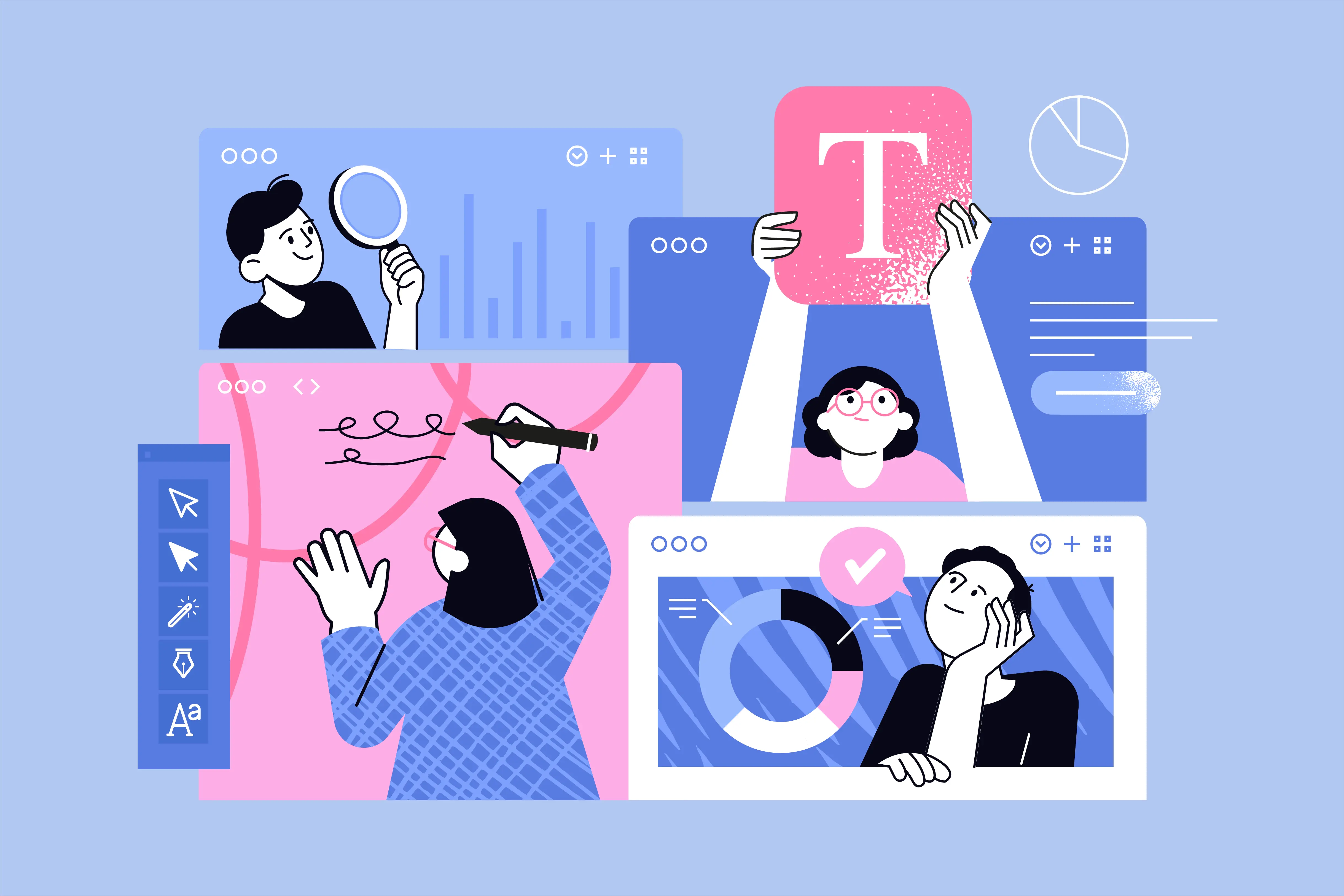Building Trust in AI Healthcare: A Deep Dive into HIPAA, SOC 2, and Data Privacy
Learn how AlloMia's commitment to HIPAA, SOC 2, and robust data privacy strategies builds a foundation of trust for AI in healthcare, enabling secure voice agent deployment.
Marc Laurent-Atthalin
Co-founder & Chief Operating Officer

Building Trust in AI Healthcare: A Deep Dive into HIPAA, SOC 2, and Data Privacy
The rapid and transformative adoption of Artificial Intelligence (AI) within the healthcare sector heralds an era of immense promise, offering unprecedented opportunities for innovation, efficiency, and improved patient outcomes. However, this profound potential is inextricably linked to an equally profound responsibility. In an industry where the most sensitive and personal patient data is routinely handled, trust transcends being merely a desirable feature; it becomes the absolute, non-negotiable foundation upon which the entire system must be meticulously constructed. Both patients and healthcare providers must possess unwavering confidence that their highly sensitive information is managed with the utmost care, subjected to the most stringent security protocols, and adheres rigorously to all relevant regulatory standards.
At AlloMia, we firmly believe that a proactive, comprehensive, and unwavering commitment to security and compliance is not merely an option, but an absolute imperative. This in-depth exploration will meticulously detail our steadfast commitment to forging a truly trustworthy AI platform, achieved through our rigorous adherence to the foundational principles of HIPAA, the demanding requirements of SOC 2 certification, and the implementation of robust, cutting-edge data privacy strategies. Our dedication ensures that our SOC 2 compliant healthcare voice AI solutions are not only powerful but also inherently secure and reliable for healthcare organizations worldwide.
As healthcare organizations increasingly seek secure voice AI for healthcare solutions that can handle sensitive patient interactions while maintaining compliance, understanding these foundational security principles becomes crucial for making informed implementation decisions. When evaluating the business case for AI in healthcare, security and compliance considerations often represent the most critical factors in determining long-term success and organizational acceptance.
Key Takeaways:
- HIPAA Compliance: Our platform is designed to be a HIPAA compliant AI assistant, adhering to strict standards for protecting Patient Health Information (PHI).
- SOC 2 Certification: We are committed to achieving SOC 2 compliance, a testament to our robust information security controls.
- Privacy by Design: We employ advanced security measures like end-to-end encryption and data minimization to ensure privacy-focused medical call automation.
- Building Trust: Our goal is to provide a platform that healthcare organizations can trust implicitly as they innovate with AI.
- Regulatory Compliance: We address the complex landscape of voice AI regulatory requirements to ensure seamless healthcare deployment.
Understanding HIPAA and its Indispensable Role in AI Healthcare
The Health Insurance Portability and Accountability Act (HIPAA) stands as the foundational cornerstone of patient data protection within the United States healthcare landscape. For any AI platform aspiring to operate effectively and ethically within this highly regulated environment, it is not merely sufficient to acknowledge HIPAA; its core principles must be meticulously embedded into the very architecture and operational design of the AI system.
Protecting Protected Health Information (PHI) with Unwavering Rigor
Any piece of information that can be reasonably linked to an individual's health status, the provision of their healthcare, or the payment for their healthcare services is classified as Protected Health Information (PHI). This broad definition encompasses a vast array of data, from medical records and diagnoses to billing information and even demographic details. Our systems are engineered with an uncompromising commitment to ensuring that all PHI is handled with the absolute strictest confidentiality, subjected to robust security measures, and processed in a manner that upholds the highest standards of data integrity and privacy.
For healthcare data privacy automation systems, this means implementing sophisticated access controls, audit trails, and data handling protocols that automatically enforce HIPAA requirements without requiring manual intervention. Our secure medical call handling AI is designed to process patient conversations while maintaining complete confidentiality and generating comprehensive AI audit trails in healthcare that satisfy regulatory requirements. This approach is particularly important for applications like chronic disease management, where ongoing patient interactions require consistent privacy protection over extended periods.
Adhering to the "Minimum Necessary" Standard: A Principle of Prudence
A fundamental and critical tenet of HIPAA is the "minimum necessary" standard. This principle mandates that AI tools, and indeed all entities handling PHI, should only access, use, or disclose the precise amount of data that is strictly required for their intended, legitimate purpose. This proactive approach significantly reduces the potential attack surface for data breaches and reinforces patient privacy. Our HIPAA compliant AI assistant is meticulously designed to operate in strict adherence to this principle, intelligently limiting data exposure at every stage of interaction and processing, ensuring that only essential information is utilized.
This approach is particularly crucial for healthcare system integration voice agents that must access multiple data sources while maintaining strict data minimization principles. By implementing intelligent data filtering and role-based access controls, our systems ensure that voice agents only retrieve and process the specific information necessary for each interaction. This principle becomes even more critical when considering EMR integration strategies, where AI systems must navigate complex healthcare data ecosystems while maintaining privacy boundaries.
The Imperative of Business Associate Agreements (BAAs): Shared Responsibility
As a third-party vendor that handles, processes, or transmits PHI on behalf of covered entities (such as hospitals, clinics, and health plans), AlloMia operates under legally binding Business Associate Agreements (BAAs) with each of our healthcare partners. This critical contractual agreement ensures that we are held to the same rigorous standards of data protection and privacy as the healthcare organizations we serve. The BAA clarifies responsibilities, outlines permissible uses and disclosures of PHI, and establishes a framework for shared accountability in safeguarding sensitive patient data. This legal framework provides an additional layer of assurance and trust for our partners.
Understanding the legal considerations AI in healthcare is essential for any organization considering AI implementation. Our comprehensive BAA framework addresses not only current regulatory requirements but also anticipates future developments in healthcare AI regulation. For organizations operating in Canada, additional considerations around Quebec's Law 25 compliance further demonstrate the importance of robust legal frameworks in healthcare AI deployment.
SOC 2 Compliance: A Commitment to Security Excellence
While HIPAA sets the standard for healthcare data, SOC 2 is a rigorous, voluntary compliance framework that demonstrates a company's commitment to data security. Our pursuit of SOC 2 certification is a clear indicator of our dedication to being a SOC 2 compliant healthcare voice AI provider that meets the highest industry standards for security and reliability.
SOC 2 audits evaluate a service organization's controls based on five trust service principles: Security, Availability, Processing Integrity, Confidentiality, and Privacy. By adhering to these principles, we provide our partners with the assurance that their data is managed within a secure and reliable infrastructure.
The Five Trust Service Principles in Healthcare AI Context
Security: Our infrastructure employs multi-layered security controls including network security, access controls, and system monitoring to protect against unauthorized access. For secure voice data storage healthcare applications, we implement encryption at rest and in transit, ensuring that voice recordings and transcriptions are protected throughout their lifecycle.
Availability: Healthcare operations cannot afford downtime. Our systems are designed with redundancy and failover mechanisms to ensure continuous availability of AI services, critical for 24/7 healthcare AI phone assistants that must be available around the clock. This reliability is essential for 24/7 patient support applications where system availability directly impacts patient care quality.
Processing Integrity: We implement comprehensive data validation and processing controls to ensure that AI operations are completed accurately and completely. This is particularly important for healthcare AI privacy standards 2025 compliance, where data integrity is paramount. Our commitment to processing integrity aligns with industry efforts to address AI accuracy and bias concerns through systematic validation and oversight mechanisms.
Confidentiality: Beyond HIPAA requirements, we implement additional confidentiality measures to protect sensitive information from unauthorized disclosure, essential for maintaining patient trust in AI-powered healthcare communications.
Privacy: We adhere to privacy principles that govern the collection, use, retention, and disposal of personal information, ensuring that patient privacy is maintained throughout the AI interaction lifecycle.
Proactive Data Privacy Strategies: Beyond Compliance
Compliance is not just about checking boxes; it's about implementing proactive strategies to protect data. Our healthcare data privacy ai voice assistant is built on a foundation of modern security practices that anticipate and mitigate potential risks before they materialize.
Advanced Encryption and Data Protection
- End-to-End Encryption: All data, whether in transit over a network or at rest on our servers, is protected by strong encryption protocols that meet or exceed industry standards for healthcare data protection.
- Data Minimization: We design our systems to collect and process only the information that is absolutely necessary for the AI to perform its function, reducing the attack surface and enhancing privacy.
- Advanced Techniques: We continuously explore advanced privacy-preserving techniques, such as federated learning, which allows AI models to learn from decentralized data without needing to move raw patient information from its source.
Secure Cloud Integration and Infrastructure
Our secure cloud integration healthcare architecture is designed to meet the stringent requirements of healthcare organizations while providing the scalability and reliability needed for modern AI applications. This includes:
- Zero-Trust Architecture: Every access request is verified regardless of location or user credentials
- Continuous Monitoring: Real-time monitoring and alerting for suspicious activities
- Disaster Recovery: Comprehensive backup and recovery procedures to ensure data availability
- Compliance Automation: Automated compliance monitoring and reporting to reduce administrative burden
Navigating the Regulatory Landscape: Key Challenges and Solutions
| Challenge | Specific Issues | Mitigation Strategies |
|---|---|---|
| Technical Integration | Legacy EHRs, Incompatible Data Formats | Robust APIs & Interoperability Frameworks, Extensive Customization |
| Accuracy & Patient Safety | High Error Rates, Misinterpretation of Information | Mandatory Human Oversight & Validation, Rigorous Testing |
| Regulatory Compliance | HIPAA Mandates, SOC 2 Certification, Data Privacy | End-to-End Encryption, Robust BAAs, Data Minimization |
| Ethical Concerns & Bias | Algorithmic Bias, Lack of Transparency | Diverse Training Data, Explainable AI (XAI) Features |
| Workforce Resistance | Clinician Skepticism, Patient Discomfort | Comprehensive Training, Clinician Involvement in Design |
| Cross-Border Compliance | GDPR, Provincial Privacy Laws | Multi-jurisdictional privacy frameworks, Data localization options |
AI Risk Management in Clinical Workflows
Implementing AI risk management clinical workflows is essential for healthcare organizations adopting AI voice technology. Our approach includes comprehensive strategies that address both technical and clinical considerations, recognizing that effective AI deployment requires balancing innovation with safety.
Risk Assessment Framework
- Continuous Risk Monitoring: Real-time assessment of AI performance and potential risks
- Clinical Safety Protocols: Structured approaches to ensure AI recommendations align with clinical best practices
- Incident Response: Comprehensive procedures for addressing AI-related incidents or errors
- Regular Audits: Systematic review of AI operations and compliance status
This framework is particularly important when considering front office transformation initiatives, where AI systems interact directly with patients and must maintain the highest standards of accuracy and reliability. The risk management approach must also account for the unique challenges of different communication modalities, as explored in our analysis of voice AI versus chatbots in healthcare communication.
Compliance Automation Tools
Our compliance automation tools healthcare help organizations maintain regulatory compliance without overwhelming administrative staff:
- Automated Audit Trails: Comprehensive logging of all AI interactions and decisions
- Compliance Dashboards: Real-time visibility into compliance status and potential issues
- Regulatory Reporting: Automated generation of compliance reports for regulatory bodies
- Policy Management: Centralized management of compliance policies and procedures
These tools are designed to reduce the administrative burden that often contributes to clinician burnout, allowing healthcare professionals to focus on patient care rather than compliance paperwork.
Building Trust Through Transparency and Explainability
Ultimately, all these technical and regulatory measures serve a single purpose: to build and maintain trust. We are committed to transparency in how our AI systems operate and make decisions. As the industry evolves, we are actively engaged with the principles of Explainable AI (XAI), which aims to make the "black box" of AI more understandable to users and auditors alike.
This commitment ensures that our partners can rely on us for secure medical call handling AI that is both effective and trustworthy. Our explainable AI features help healthcare professionals understand how decisions are made, building confidence in AI-powered healthcare interactions.
Transparency in AI Decision-Making
Our systems provide:
- Decision Explanations: Clear explanations of how AI reaches specific conclusions
- Confidence Scoring: Indication of AI confidence levels for different recommendations
- Human Override Capabilities: Easy mechanisms for healthcare professionals to override AI decisions when necessary
- Audit Capabilities: Comprehensive tracking of all AI decisions and their rationale
International Compliance and Future-Proofing
As healthcare AI adoption spreads globally, we recognize the importance of addressing international compliance requirements. Our platform is designed to accommodate various regulatory frameworks, particularly important for organizations operating across multiple jurisdictions.
Global Privacy Standards
- GDPR Compliance: Full compliance with European data protection regulations
- Provincial Privacy Laws: Adherence to Canadian provincial privacy requirements
- Emerging Regulations: Proactive preparation for developing AI-specific healthcare regulations
For Canadian healthcare organizations, our comprehensive approach to AI solutions for Canadian healthcare ensures that all relevant provincial and federal regulations are addressed, providing peace of mind for organizations navigating complex regulatory landscapes.
Future-Ready Architecture
Our healthcare AI privacy standards 2025 approach anticipates future regulatory developments:
- Adaptive Compliance Framework: Flexible architecture that can accommodate new regulatory requirements
- Continuous Monitoring: Systems that track regulatory changes and adapt accordingly
- Stakeholder Engagement: Active participation in regulatory discussions and standards development
A Foundation of Trust for the Future of Healthcare
By embedding the principles of HIPAA, SOC 2, and proactive data privacy into the DNA of our platform, AlloMia provides a secure foundation for the future of AI in healthcare. We believe that innovation and trust must go hand-in-hand, and we are dedicated to being a partner that healthcare organizations can rely on as they embrace the transformative power of AI.
Our comprehensive approach to security and compliance enables healthcare organizations to confidently deploy AI voice technology while maintaining the highest standards of patient privacy and data protection. As the healthcare industry continues to evolve, our commitment to security, compliance, and transparency ensures that our partners can focus on what matters most: delivering exceptional patient care.
For healthcare organizations looking to implement AI voice technology, understanding these foundational security principles is crucial. Our expertise in navigating the complex regulatory landscape, combined with our commitment to cutting-edge security practices, makes us a trusted partner for healthcare innovation.
Ready to explore how secure AI voice technology can transform your healthcare operations? Learn more about our AI voice agent anatomy and core technologies, discover AI solutions for front office transformation, or explore how AI can provide 24/7 patient support while maintaining the highest security standards.
Ready to Transform Patient Care?
Discover how AI voice agents can streamline your healthcare operations and enhance patient experiences.
By Marc Laurent-Atthalin
Co-founder & Chief Operating Officer
Numbers tell stories, and in healthcare, those stories can save lives. With my deep expertise in data analytics and operations optimization, I help AlloMia transform complex healthcare data into actionable insights. My role is ensuring our AI voice technology doesn't just work but delivers measurable impact that healthcare teams can see and patients can feel.
Related Articles
Continue exploring our AI Insights


